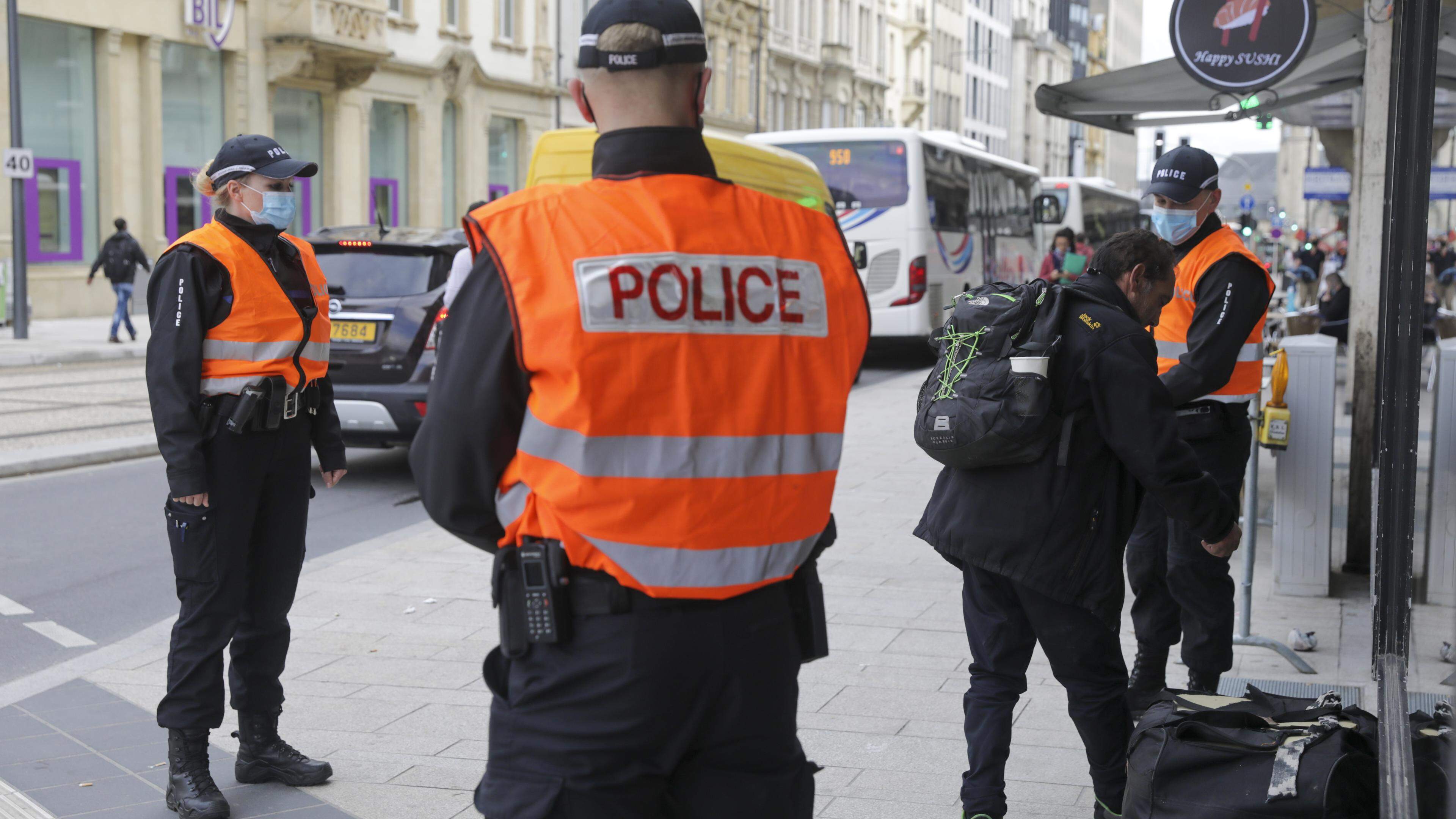28 organizations oppose the dismissal

At a time when massive human rights violations take place worldwide, it is all the more important to ensure that such developments do not repeat themselves at national level. This is the tenor of a press conference on Thursday of the civil society network Voĉothat was founded in October last year. Because: According to those involved, current legislative initiatives in Luxembourg do not go towards more rights and freedoms – on the contrary.
A central example is the law on the so -called dismissal. « Internationally, it can be observed where there are restrictions on fundamental rights – for example in the United States, where even citizens are deported or brought into warehouse without procedures, » warns David Pereira from Amnesty International. These developments are just as unacceptable as Europe’s and Luxembourg’s way in relation to the conflicts in Ukraine or in Gaza. « We need people who raise their voice and defend fundamental rights – and it starts in our own country, » says Pereira.
Too much room for interpretation
The draft law allows people to refer people from public space if they « disturb » – for example by sleeping in front of buildings, lack of hygiene or noise. But the terms are out of focus, the criteria are unclear. To leave too much of the interpretation – with far -reaching consequences: « Anyone who opposes the dismissal can be violently removed, with a ban on returning one kilometer and with up to 250 euros in fine – and this affects the socially weak as well as homeless, addicted or begging, » explains Pereira.
The result: if you cannot pay, you will be criminalized and risk a prison sentence. Symptoms are being worked on, not causes such as housing shortages or a lack of psychosocial care. In addition, the decision about references is not with courts or the Ministry of the Interior, but with the mayors. That is highly problematic.
Default: disproportionate, imprecise – questionable for fundamental rights
Voĉo sees the legal project a clear violation of the rule of law – especially in relation to a legal basis, proportionality and the legitimate purpose. The basis of the criticism is, among other things, Article 13 of the General Declaration of Human Rights, which guarantees the right to freedom of movement within a country. Support also comes from other organizations and the State Council, which have also been critically expressed.
Door opener for arbitrariness
In addition to the dismissal, the criticism of the 28 associations is also directed against a second legislative project – that to restrict the right to demonstrate. « The draft leads to a change from mere registration to an approval process – that is a democratic step backwards, » emphasizes Magali Paul from ASBL Cell. Numerous terms are unclear and opened the door for arbitrary decisions. In addition, the police and mayors received too much power.
A dismissal with side effects
« The restriction of civil society areas begins where the possibility of public expression is restricted, » emphasizes Sébastien Weier from the Coopération of the Ongd. « It also begins with the demonization of civil society actions in the press or through comments – for example when demonstrations are presented as a security risk. »
It also shows when politicians question the meaning and purpose of certain associations. « We would like to make sure that we stay in a lively democracy – in which you do not have to be an opinion, but can respect yourself and in which you can lead a controversial but respectful discourse, » Weier concludes ..
Free expression of opinion endangered
« The public space is central to the democratic participation, » said Paul. The legal projects endangered the right to freedom of expression and assembly. Legitimate restrictions must be necessary, relatively and clearly defined – and in accordance with the state’s constitutional and international obligations.
The message of the 28 civil society organizations is clear: both legislative projects must be withdrawn. They threaten fundamental freedoms and could pave the way for abuse.
Who is voĉo?
Voĉo is a network of 28 civil society organizations that was founded in response to the public debate about the Caritas affair. The aim is to protect civil society space. The name Voĉo comes from the Esperanto and stands for a common, united voice of civil society, which nevertheless remains pluralistic. The network sees itself as horizontal, not formalized and without hierarchies, management positions or institutional means. One sees itself as a voluntary association of committed actors. Initial talks with politicians, also with the Prime Minister, have already taken place. These are rated as open and positive, even if there are still concrete results.
Members of Voĉo are: Abram, Amitié am Sand-Amizero Ong, Amnesty International Luxembourg, Asti, Astm- Action Solidarité Tiers Monde, Athénée- action Humanitaire, Cell, Cercle de Coopération des Ongd, Clae, Comité Pour Une Paix Juste au Orient, Cultur’all, Dignitas, EMWeltberodung Lastebuerg ASBL,
Etika, Fairtrade Lëtzebuerg Frères des Hommes, Friddens–a Solidaritéitsplattform, Greenpeace, Le Soleil dans la Main, Les Amis de Piraja, Life, Médecins du Monde, Mouvement Ecologique, Natur & Mwelt asbl, parage and SOS FAIM and SOLIDARITIE MAT den Heescherten.






